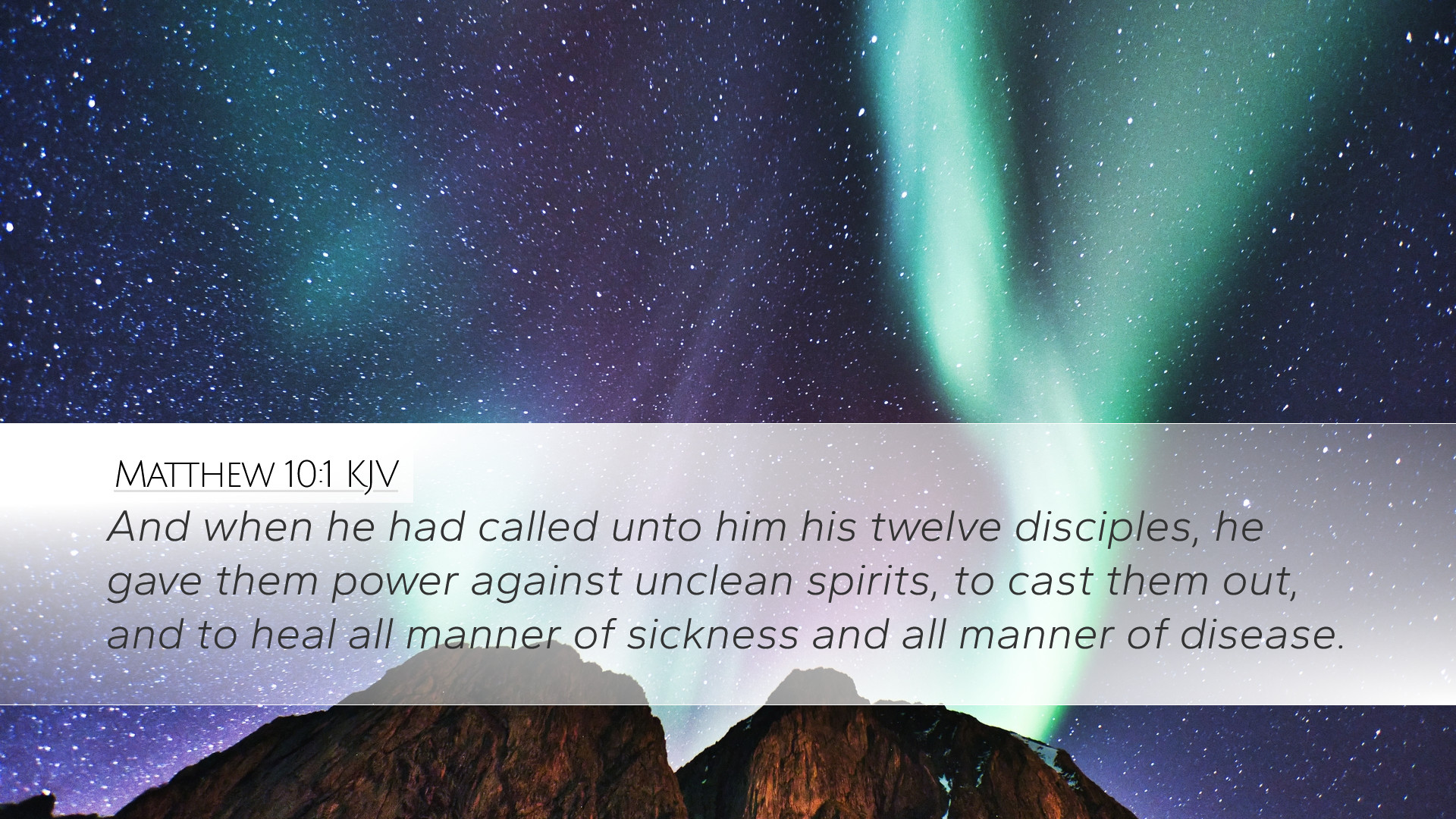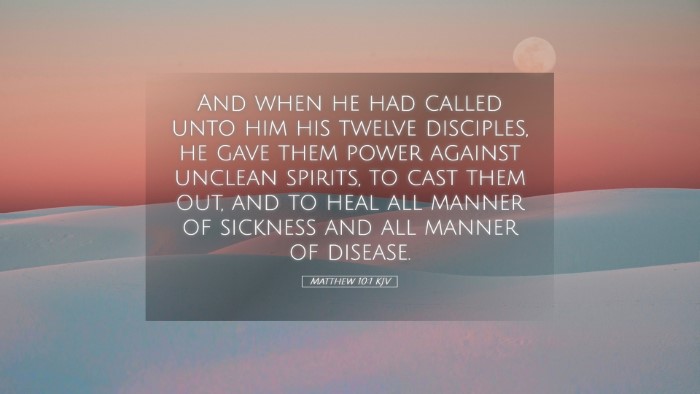Commentary on Matthew 10:1
Verse: "And when he had called unto him his twelve disciples, he gave them power against unclean spirits, to cast them out, and to heal all manner of sickness and all manner of disease."
Introduction
This scripture marks a significant moment in the ministry of Jesus as He appoints His twelve disciples for a pivotal mission. This verse encapsulates the authority given to the disciples, underscoring the transition from hearing the teachings of Christ to actively participating in His healing and delivering ministry.
Exegesis of Matthew 10:1
The action of Jesus "calling" His disciples highlights a deliberate choice, showing that He equipped those He called with divine authority. This moment is vital for understanding the role of the disciples in the early church and their mission to bring the Kingdom of God to the people.
Insights from Commentators
-
Matthew Henry:
Henry emphasizes the significance of Jesus calling the twelve disciples, noting that it signifies the establishment of a foundational leadership within the Church. He comments on the nature of the power given to the disciples, pointing out that it is derived from Christ Himself, thereby authenticating their mission.
-
Albert Barnes:
Barnes elaborates on the "power" bestowed upon the disciples, interpreting it not merely as miraculous capability, but as authority to act on behalf of Christ. This act includes authority over unclean spirits, which signifies the spiritual warfare inherent in their call. He also indicates the importance of this empowerment in equipping them for their evangelistic efforts.
-
Adam Clarke:
Clarke provides a detailed explanation of the types of diseases and unclean spirits mentioned, linking them to the physical and spiritual malady prevalent in society. He highlights that the healings performed by the disciples were not only for the restoration of health but also served as signs of the in-breaking Kingdom of God. Clarke reflects on the foundational role these miraculous signs played in affirming the gospel message.
Theological Implications
The granting of power signifies an important aspect of God’s mission through His people. It challenges modern believers to understand their own empowerment by the Holy Spirit for the work of the ministry. The Messianic authority vested in the disciples sets a pattern for spiritual leadership, where authority is always a reflection of service and empowerment, not dominance.
Practical Application
For pastors, theologians, and students of the Word, this verse offers profound insights into the nature of Christian leadership. It reiterates the necessity of divine empowerment in ministry. The expectation is clear: a disciple must not only be a learner but an active participant in God's work. The call to minister to "all manner of sickness and all manner of disease" indicates a holistic mission that encompasses physical, emotional, and spiritual needs.
Conclusion
In summary, Matthew 10:1 serves as a powerful reminder of the authority and responsibility entrusted to believers. As modern-day disciples, the church is called to engage in the complexities of human suffering and spiritual warfare, empowered by the same Spirit that empowered the first disciples. The call to ministry remains as relevant today as it was in Jesus' time, requiring a heart attuned to God’s voice, ready to act upon the commission bestowed upon every believer.


